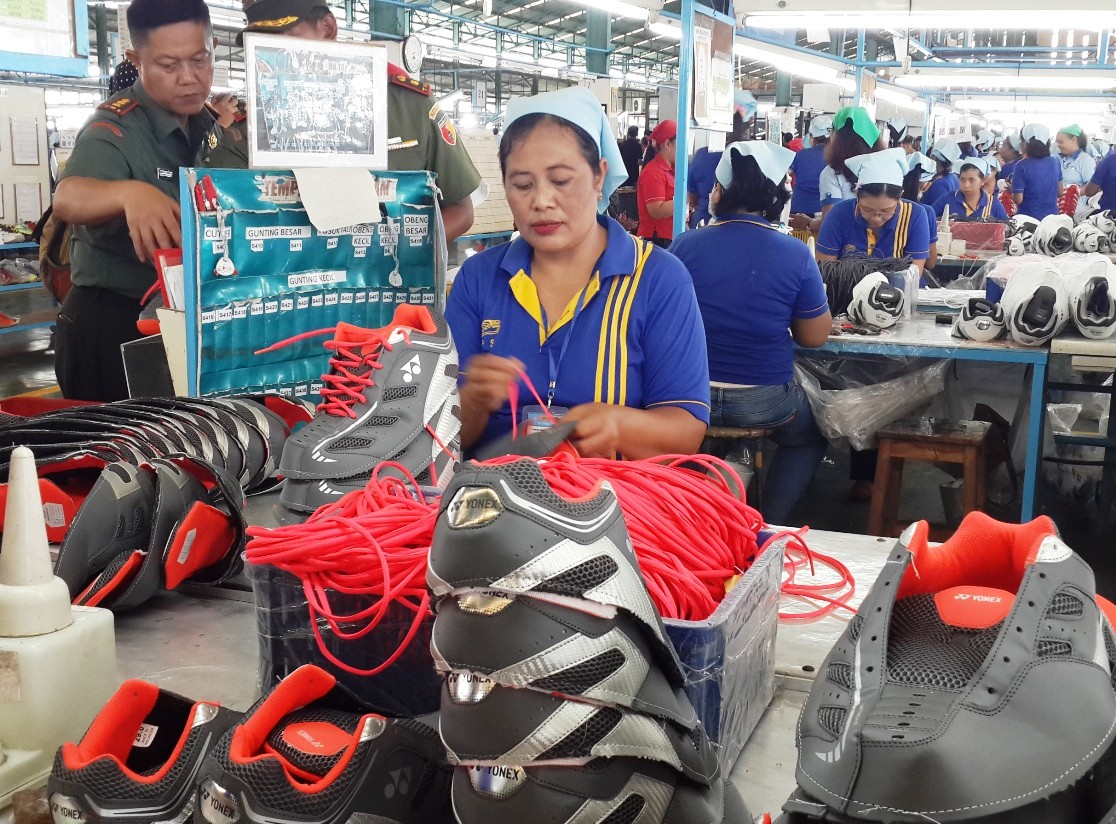Big firms tap into specialty textile market
Change text size
Gift Premium Articles
to Anyone
 Workers tie shoes in a plant run by PT Dwi Prima Sentosa in Mojokerto, East Java, on Feb. 28. (JP/Stefani Ribka)
Workers tie shoes in a plant run by PT Dwi Prima Sentosa in Mojokerto, East Java, on Feb. 28. (JP/Stefani Ribka)
S
everal big firms have started pushing up production in specialty textiles or fabrics for special purposes, such as sofa and shoes amid the country's dependence on the import of these materials.
"Generally, some big firms have begun investing in the segment [specialty textiles]," Prama Yudha Amdan, the executive member of Indonesian Association of Synthetic Fiber Producers (APSyFI), said on Monday.
Publicly listed PT Asia Pacific Fibers is one company that has entered this market.
To keep the investment going and be able to fulfill national demand, Yudha added, the government must lower gas prices, electricity tariffs and labor costs in Indonesia that remain higher than rivals China and India.
"Specialty textiles need bigger investment [than common textiles] so it's important that the government lower gas prices and other costs," Yudha added.
Indonesia’s gas price, at US$9 per million British thermal units (mmbtu), for example, is among the highest in the world. APSyFI urged the government to lower it to $6 per mmbtu as energy contributed to 25 to 30 percent of production cost structure in upstream textile industries.
Previously, shoes and sofa makers complained that volume and variety of local specialty textiles to make furniture, accessories and shoes are still limited. About 60 percent of furniture materials including textiles are still imported, according to Indonesian Society of Interior Designers (HDII). (ags)









